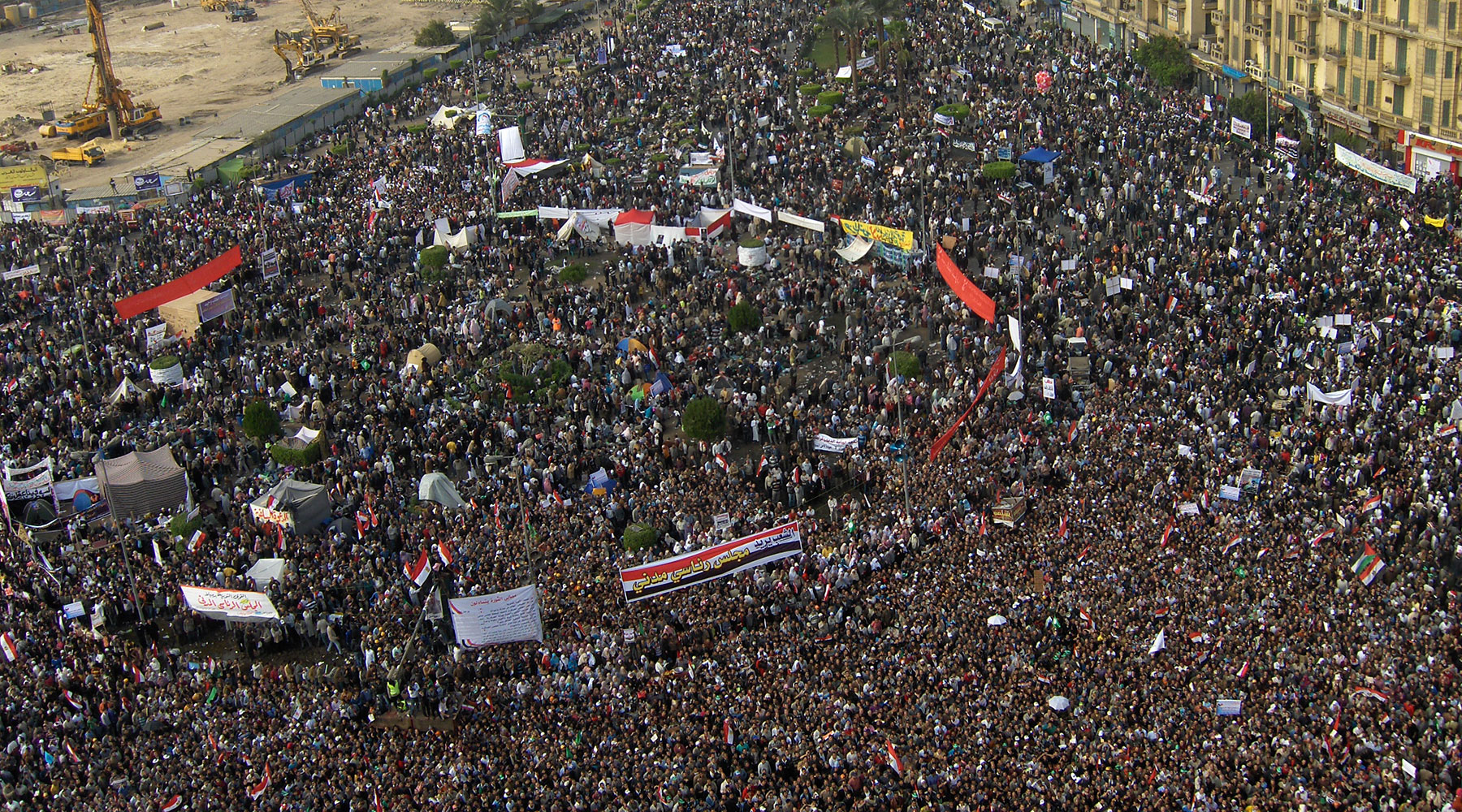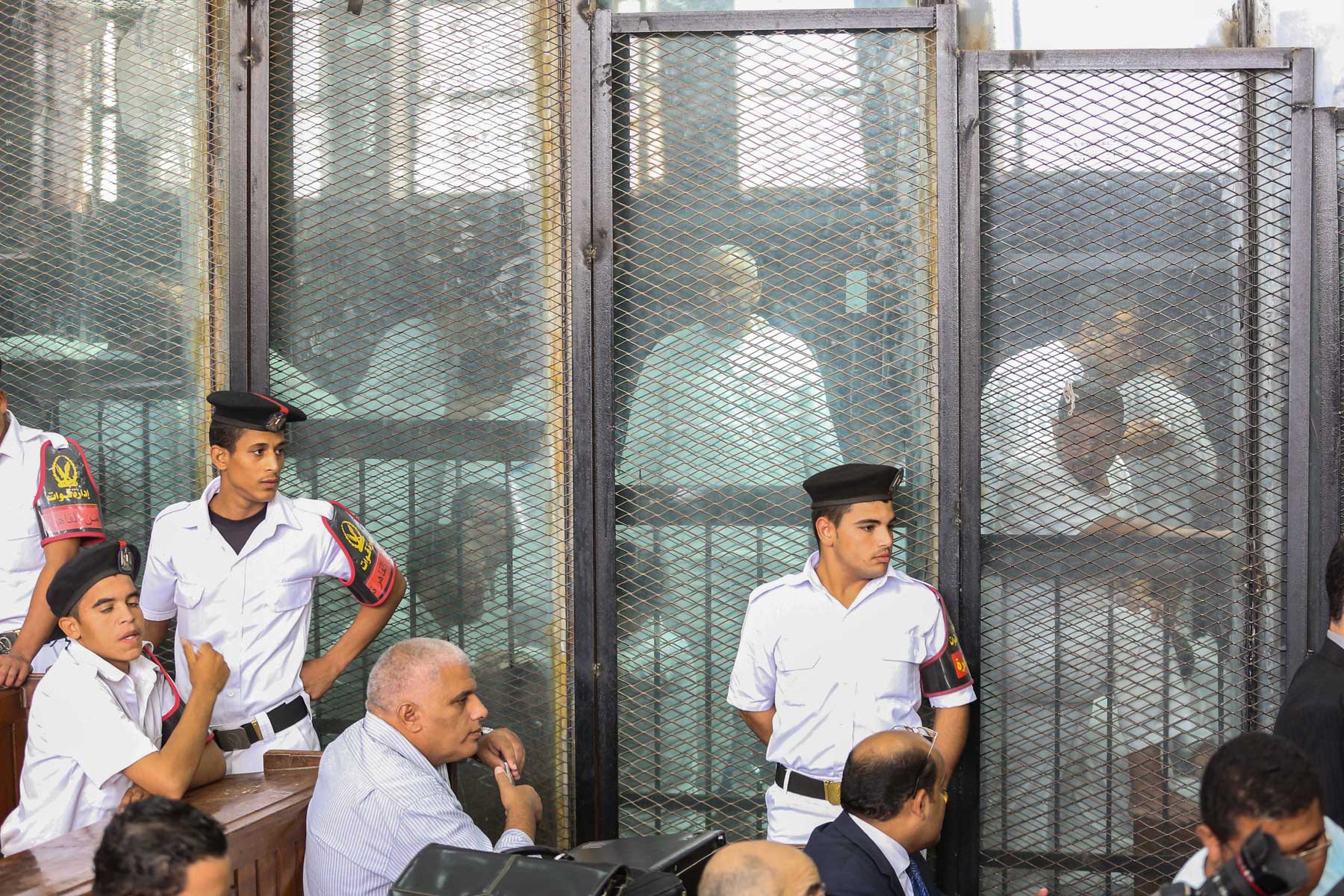



Since the overthrow of Egypt's only democratically elected government in 2013, the country has been engulfed in a human rights crisis never before seen in its history. Egypt's military-controlled government has reportedly detained at least 50,000 Egyptians whom the government considers to be opponents, either because of their affiliation with the Muslim Brotherhood or for expressing views deemed critical of the government. Without any semblance of due process, the government has used enforced disappearances and endlessly-renewed "pretrial detentions" that in many cases have lasted for more than five years, and handed down lengthy prison and mass death sentences in highly politicized trials. In addition, the government has conducted tens of extrajudicial executions and violent attacks on protesters, including the massacre of nearly 1,000 protesters in Rabaa and al-Nahda Squares on August 14, 2013, the largest massacre of protesters in a single day in the region, and one of the largest in the world. Inhumane prison conditions have led to scores of detainee deaths. Extensively documented conditions include widespread and systematic torture, deprivation of food and medical care, and severe restrictions on family and legal visits.
Meanwhile, the government has pursued a questionable military campaign in Sinai against radical Islamist armed groups. Despite the presence of 40,000 troops in the region, the government has been unable to contain the extremist rebellion or assume full control of the territory. As of August 2020, at least 5,000 people have been killed and 12,000 arrested in a population of 500,000 people. The government has forcibly evicted at least 13,000 families residing in 79 square kilometers near the Gaza border, destroying houses, agricultural land, and businesses in the vicinity.
Since taking power, the military-backed government has also used new laws to curtail freedoms of expression, assembly, and association; passed "counter-terrorism" laws with severe penalties for critical political expression; effectively banned non-governmental organizations; criminalized opposition groups; reinstated military trials for civilians; and completely removed the military and its entire budget from civilian control.
On April 26, 2022, Egyptian President Abdel Fattah al-Sisi announced during the Egyptian Family Iftar that the Egyptian government would hold a national dialogue for the purpose of national reconciliation and as a step toward legislative and executive reforms that will follow. On May 3, the National Dialogue convened its opening session, which was attended by most of the internal opposition entities led by the Civil Democratic Movement. During the Dialogue's first week, Egyptian security forces detained 16 relatives and supporters of former parliament member, Ahmed Tantawi, on charges of "possessing leaflets that promoted support for Tantawi by force, and others that promoted statements by Muslim Brotherhood founder Hassan al-Banna." Some defendants were also charged with possessing "fireworks and weapons." They denied all the charges. In light of the arrests, opposition groups, including the Civil Democratic Movement announced that they were reconsidering their participation in the National Dialogue.
During the Egyptian Family Iftar, President al-Sisi also announced the reactivation of the Presidential Pardon Committee responsible for proposing names of political detainees for release. Between April 2022 and June 15, 2023, the Egyptian authorities released 1,151 detainees, while detaining 3,666 others, according to the Egyptian Front for Human Rights. In August 2023, the Presidential Pardon Committee announced the release of 67 detainees, which included the newly sentenced and detained activist Ahmed Douma.
Ignoring the systematic human rights abuses committed by the Egyptian government, the US provides Egypt with $1.3 billion in annual military assistance. The US maintains close security and diplomatic cooperation with the Egyptian government, strengthening the latter's capacity to repress its citizens. Egypt's dependence on US aid has helped ensure its compliance with the US government's strategic priorities in the region.
We’re fighting for a ceasefire and accountability for Israeli and U.S. officials responsible for war crimes in Gaza.
DAWN is a nonprofit organization that promotes democracy, the rule of law, and human rights for all of the peoples of the Middle East and North Africa (MENA).
© DAWN. Website Design by KRS Creative.